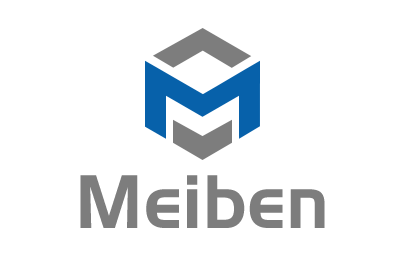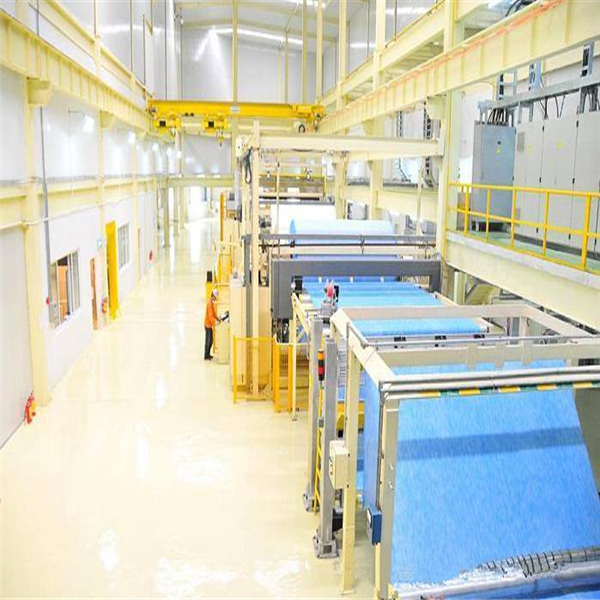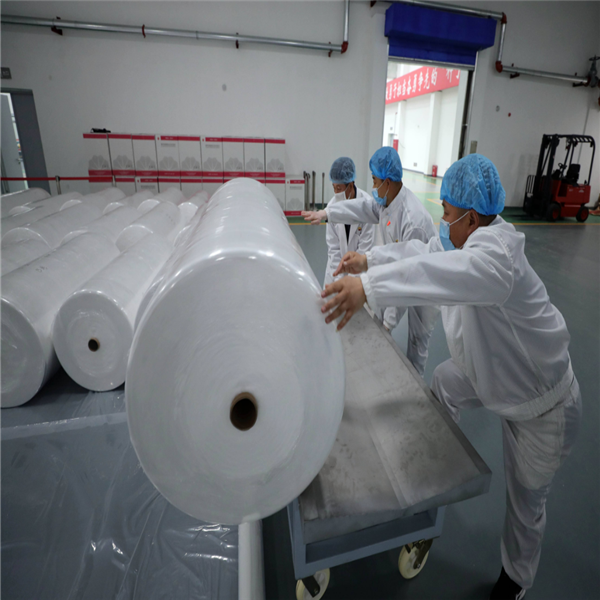Under circumstances, the problem of masks being “difficult to find” has become increasingly prominent. According to the production in 2018, the daily production capacity of masks in my country is about 20 million. Even if the 800 million working population changes a mask every two days, the daily consumption of masks is as high as 400 million. The gap in mask production capacity is obvious.
On February 9, the National Development and Reform Commission and other three ministries and commissions issued a document encouraging companies to rapidly expand the production of medical protective materials such as masks through technological transformation and adding production lines, and implement government procurement of key medical materials for epidemic prevention and control. Zhejiang Province has also recently proposed to support qualified manufacturers to switch to mask production.
As a result, many related companies in the industry chain have switched to production. Companies including BYD (002594.SZ), Baojun Automobile, Foxconn, Daddy Baby (834683.SZ), Zhongshun Jierou (002511.SZ) and other companies have joined the production of masks across the border.
However, the surge in demand for masks in the short term has also disrupted the balance of supply and demand for other products in the industry chain. So, which products will be affected by the expansion of mask production capacity? What are the relevant listed companies?
Non-woven production capacity expansion is limited
The core raw material of masks is non-woven fabric. Common medical surgical masks consist of three layers of non-woven fabrics. The inner layer is an ordinary non-woven fabric; the outer layer is a non-woven fabric with water-repellent treatment; the middle filter layer is an electret-treated polypropylene melt-blown non-woven fabric; the final masks have to be passed through ethylene oxide After being disinfected with alkane and standing for 7 days to volatilize toxicity, it can be shipped out.
The production capacity of masks will expand rapidly in the short term, and there is no doubt that the demand for non-woven fabrics will also increase sharply. Non-woven fabrics are a sub-category with good prospects in the textile industry and have maintained rapid growth in recent years. In 2017, my country has become the world’s largest non-woven fabric producer, accounting for 35% of global production. In 2018, my country’s non-woven fabric production reached 3.939 million tons.
Image source: Guanyan Tianxia, Interface News Research Department
Moreover, my country’s non-woven fabric production capacity is mainly concentrated in the southeast region. Among them, Jiangsu, Zhejiang, Shandong, Hubei, Guangdong, and Fujian are major non-woven fabric production provinces. Most companies have resumed work on February 10, but since Hubei Province is the epicenter of the epidemic, the recovery of production capacity will also be delayed. Hubei Province’s production capacity accounts for about one-tenth of the country’s total production capacity. On the one hand, there is a sudden increase in demand, on the other hand, under the epidemic situation, the resumption of work in Hubei, a large non-woven fabric production province, has been postponed. The contradiction of insufficient supply of non-woven fabrics has become prominent.
A-share nonwovens listed companies include: Xinlong Holdings (000955.SZ), Yanjiang shares (300658.SZ) and Nuobang shares (603239.SH). Among them, only Xinlong Holdings can produce non-woven fabrics for masks. Nuobang’s subsidiaries produce alcohol wipes, and Yanjiang’s products that can be used to produce masks are still being tested, and no orders for masks have been received. However, their share price has risen nearly 30% since the opening of the market after the year, and Xinlong Holdings, the purest target of non-woven fabrics, has even recorded a five-link board.
It is worth noting that on February 10, the five executives of Xinlong Holdings reduced their holdings by no more than 175,600 shares, accounting for 0.033%. The fast-growing category of non-woven fabrics has always limited Xinlong’s performance by its production capacity. In the short term, large-scale capacity expansion is not realistic. It is not so difficult to understand that Xinlong Holdings’ executive group reductions after the five-link board.
The short-term gross profit margin of the sanitary napkin and diaper industry is under pressure
In an industry chain, some people are happy and some are worried.
Before the epidemic, non-woven fabrics were mainly used for the production of sanitary napkins, diapers and wet wipes. The current supply of non-woven fabrics for masks is insufficient, and many companies have switched to production. Will it further lead to insufficient supply of non-woven fabrics for the production of sanitary napkins and diapers?
Zhongshunjie and Gentleman’s daddy baby also joined the mask production army, which intensified this worry.
Zhongshun Jierou is the only A-share listed company for household paper in my country. Production capacity ranks fourth in the industry. On February 9, Zhongshun Jierou announced that its subsidiaries will start the production and sales of medical masks. The mask production equipment will be shipped to Yunfu base one after another and put into production after the installation and commissioning are qualified. It is expected that the production capacity will be formed before the end of this month. In the future, the production capacity will be expanded to about 2 million pieces/day.
Daddy Baby is a listed company on the New Third Board. His main products include baby diapers and adult diapers, ranking sixth in the domestic baby diaper industry. Daddy Baby also revised the company’s articles of association on February 5 to increase the production line of medical masks and other related products. The production capacity of Daddy Baby’s masks has not been disclosed. But the stock price also gave a positive response, with an announcement that rose by as much as 29% the next day.
The increase in the price of raw materials will inevitably lead to an increase in the overall cost of sanitary napkin and diaper manufacturers, reducing industry profits, and manufacturers will try to increase prices and pass on costs. Products such as sanitary napkins and diapers are rigid requirements. Larger manufacturers are also better able to pass on costs. In 2010, due to the increase in pulp prices, there was a large-scale price increase for sanitary napkins and household paper.
Now, the surge in demand for masks has led to an insufficient supply of non-woven fabrics. The price of non-woven fabrics will also rise. Therefore, it can be judged that products made of non-woven fabrics such as sanitary napkins, diapers, and wet tissues will soon usher in price increases. Leading tissue paper companies Hengan International (01044.HK) and Vinda International (03331.HK) both have sanitary napkins and diapers businesses. Moreover, they have no plans to switch to masks. Although Zhongshun Jierou does not have sanitary napkins and diapers business, its wet wipes business contributes significantly to its profits. Therefore, the gross profit margin of Hengan International and Vinda International in 2020 will be affected to some extent. Especially for Hengan International, the sanitary napkins and diapers business contributed about 40% of revenue. Zhongshun Jierou was the least affected.
But in the long run, the concentration of the household paper industry is expected to increase. The concentration of sanitary napkin and diaper industries in my country is relatively low. According to Euromonitor statistics, the CR5 of my country’s sanitary napkin industry in 2018 was 33.7%. Larger companies, due to their channel and scale advantages, are more likely to pass on costs when costs are rising, thereby maintaining profit margins. Small businesses are gradually withdrawing to give up market space, so the market share of leading companies is also expected to increase. On the whole, household paper will appear in a situation where the strong will always be strong.
Post time: Jul-24-2021


